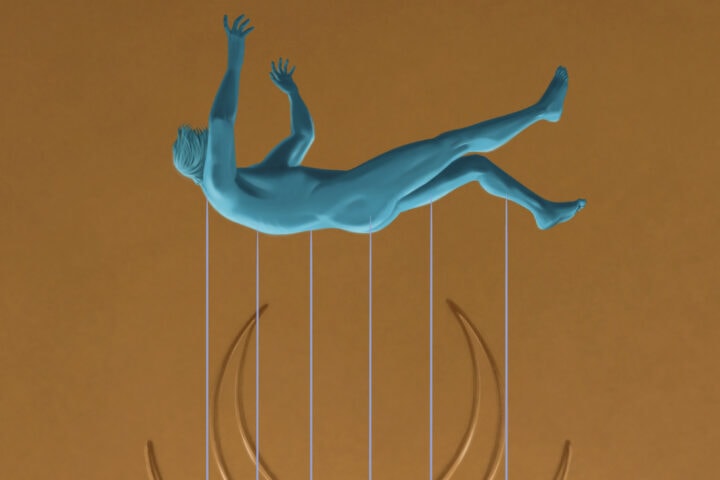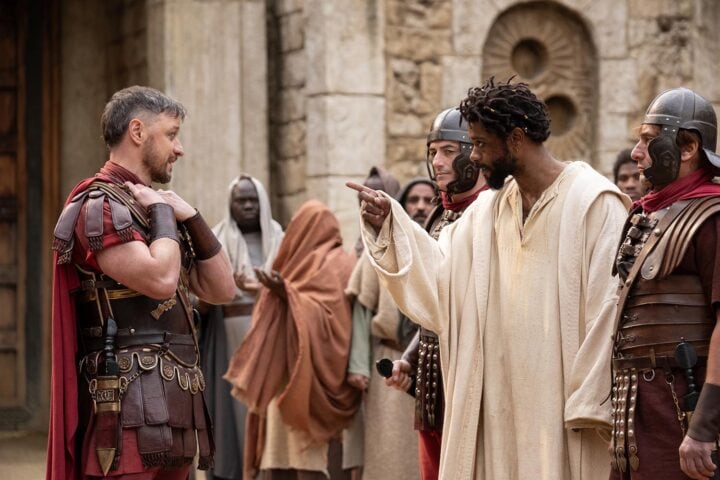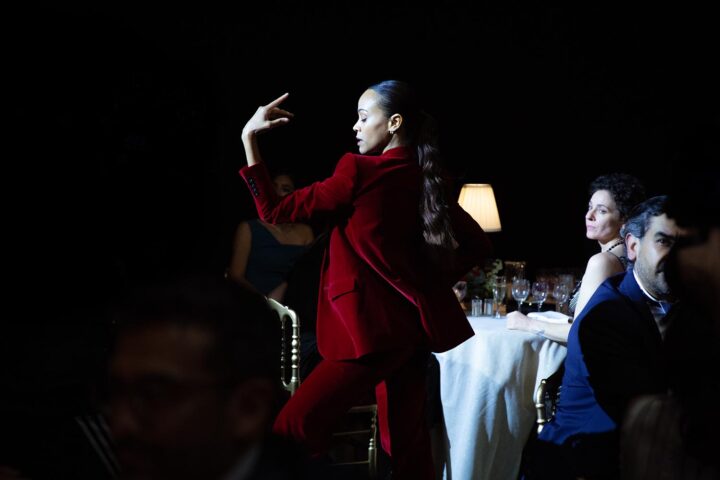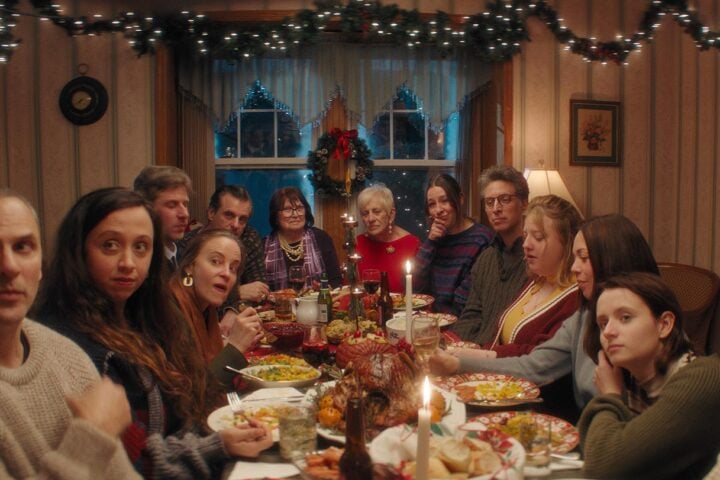Few filmmakers can electrify the mundane as convincingly as Mike Leigh, whose trademark style—broadly characterized by discreet pacing and stripped-back storylines—belies a meticulous narrative rigor. Born from a well-documented process of intense rehearsal and improvisation with a cadre of trusted actors, Leigh’s scripts are astonishingly precise in their character work, spinning knotty, elaborate webs of tension out of generally unremarkable scenarios, such as drinks with a co-worker, or a weekly driving lesson. Implicitly, the films demand close attention. Blink and you may miss someone baring their soul.
Hard Truths, then, arrives as something of a challenge. Its central character, Pansy (Marianne Jean-Baptiste, in her first on-screen collaboration with Leigh since 1996’s Secrets & Lies), isn’t particularly easy to sit with. In fact, she may be the most hard-bitten lead in Leigh’s entire roster. Nary a moment passes without her loudly, viciously slinging insults at anyone who crosses her path, be it her aptly named husband, Curtley (David Webber), her soft-spoken son, Moses (Tuwaine Barrett), her affable sister, Chantelle (Michele Austin), or any number of random passers-by. Leigh devotees could be forgiven for eyeing the film’s 97-minute runtime—the shortest of any of his features in almost three decades—and expecting a sparser work. On the contrary, Pansy’s explosive, exhausting temperament stretches minutes into eternities.
Leigh’s characters are rarely as modest as his stories. They’re allowed space to operate in extremes, bending toward outright caricature when it best suits the needs of the work. On occasion, the more cartoonish performances can chafe against the humanism of Leigh’s films instead of sharpening it, as in Timothy Spall’s oafish restaurateur from 1990’s Life Is Sweet and Lynda Steadman’s twitchy, dermatitis-afflicted psychology student from 1997’s Career Girls. Jean-Baptiste walks an especially fine line in Hard Truths, given that her character is perhaps the closest that a realist drama has ever come to a depiction of the Grinch. (When Pansy goes on a lengthy tirade about how much she loathes the “cheerful, grinning” charity workers standing outside of a supermarket, she may as well be glaring down at Whoville.)
Miraculously, that line is never crossed. Even at its funniest, Hard Truths finds Jean-Baptiste channeling an anger that feels excruciatingly real. There’s some larger-than-life acting here—in a particularly devastating scene, Pansy chokes out a single “thank you” with such difficulty that she may as well be passing a kidney stone—though the actress finds equal discomfort in the charged silences between, which have mutated into something outright terrifying by film’s end.
The origins of this unhappiness are never defined in full, and Pansy openly admits that she’s as perplexed by it as anyone else. But we can make some educated guesses: There’s a steady undercurrent of familial resentment and regret, as well as a string of health issues that may or may not be psychosomatic. This is of particular interest, as Hard Truths, notably Leigh’s first film with a contemporary setting since 2010’s Another Year, quietly gestures toward the Covid-19 pandemic as a potential catalyst for misanthropy. Pansy’s household, kept fastidiously clean and stripped of all color and identity, is less a home than a hermetically sealed chamber—a wall of Jericho between her and anything she can’t control (including her husband and son).
Hard Truths is often at its best and most probing when its borders expand to accommodate the lives of its supporting cast. Few of the interludes featuring Pansy’s family have any immediate bearing on her situation, yet absolutely none are dispensable. Throughout the film, Leigh performs one of his usual magic tricks, steadily developing characters in one-off, meandering vignettes before putting them in rooms together to examine how their preoccupations mesh.
Take the two scenes featuring Chantelle, who’s a hairdresser, working in her salon and talking with patrons. These possess a wonderfully fluid, conversational quality, and deftly sow the eventual friction between Chantelle’s curiosity and Pansy’s withering pessimism. (It’s to Austin’s credit as much as Leigh’s that this feels as effortless as it does.) But their personalities crystallize separately, for the simple reason that they’re different people leading different lives.
When they do eventually clash, the conclusions drawn are ours and ours alone. Leigh’s greatest strength as a filmmaker is his willingness to meet his characters at eye level, without condescension, conceiving of them not in moral absolutes but as products of constantly shifting systems far beyond their control or comprehension. The film doesn’t pass judgment on Pansy and her family. Rather, they pass judgment on each other while we watch.
This puts Hard Truths in sticky territory, given the intensity of both Pansy’s cruelty and of the invisible forces bearing down on her, some of which can only be distantly inferred. One of the titular hard truths may well be that even the bitterest among us are deserving of sympathy, though the murkier corollary to this is that, put bluntly, sympathy is hard-won. Leigh and his performers are content to let this contradiction sit, because to do otherwise would be dishonest.
Since 2001, we've brought you uncompromising, candid takes on the world of film, music, television, video games, theater, and more. Independently owned and operated publications like Slant have been hit hard in recent years, but we’re committed to keeping our content free and accessible—meaning no paywalls or fees.
If you like what we do, please consider subscribing to our Patreon or making a donation.





